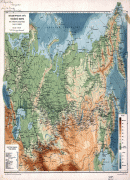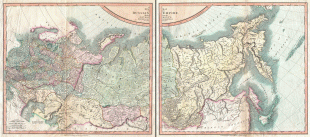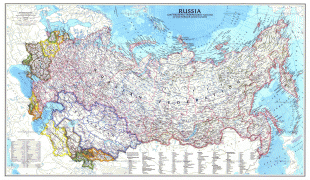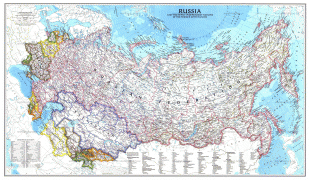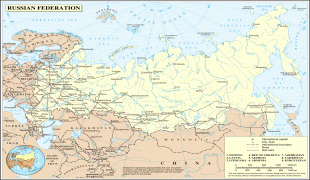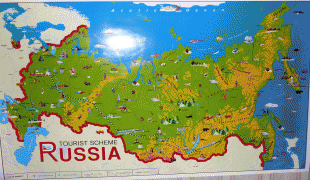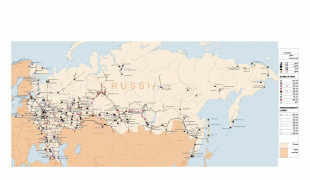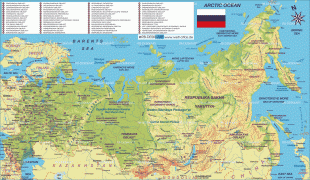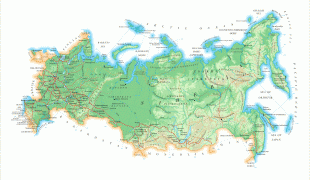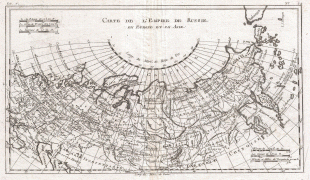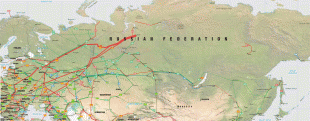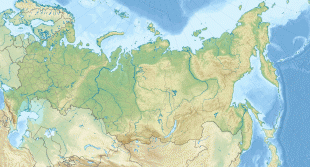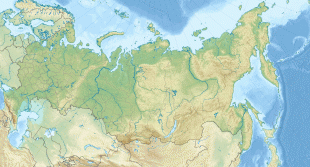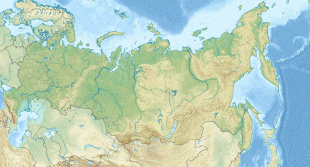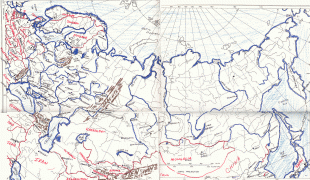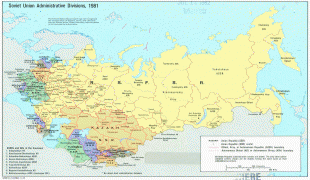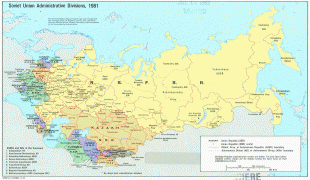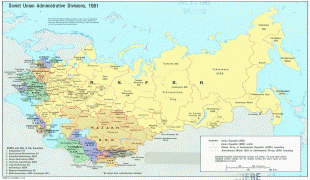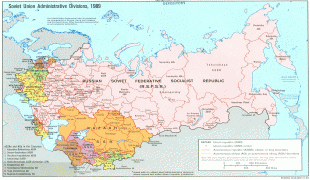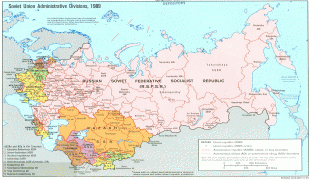Russia (Russian Federation)
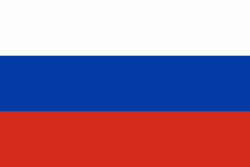 |
 |
| Flag of Russia | |
The East Slavs emerged as a recognisable group in Europe between the 3rd and 8th centuries CE. The first East Slavic state, Kievan Rus', arose in the 9th century, and in 988, it adopted Orthodox Christianity from the Byzantine Empire. Rus' ultimately disintegrated, with the Grand Duchy of Moscow growing to become the Tsardom of Russia. By the early 18th century, Russia had vastly expanded through conquest, annexation, and the efforts of Russian explorers, developing into the Russian Empire, which remains the third-largest empire in history. However, with the Russian Revolution in 1917, Russia's monarchic rule was abolished and replaced by the Russian SFSR—the world's first constitutionally socialist state. Following the Russian Civil War, the Russian SFSR established the Soviet Union (with three other Soviet republics), within which it was the largest and principal constituent. At the expense of millions of lives, the Soviet Union underwent rapid industrialization in the 1930s, and later played a decisive role for the Allies of World War II by leading large-scale efforts on the Eastern Front. With the onset of the Cold War, it competed with the United States for global ideological influence; the Soviet era of the 20th century saw some of the most significant Russian technological achievements, including the first human-made satellite and the first human expedition into outer space.
In 1991, the Russian SFSR emerged from the dissolution of the Soviet Union as the independent Russian Federation. A new constitution was adopted, and Russia has since been governed as a federal semi-presidential republic. Since the turn of the century, Russia's political system has been dominated by Vladimir Putin, under whom the country has experienced democratic backsliding and a shift towards authoritarianism. Russia has been involved militarily in a number of post-Soviet conflicts, which has included the internationally unrecognised annexations of Crimea in 2014 from neighbouring Ukraine and four other regions in 2022 during an ongoing invasion. International rankings of Russia place it low in measurements of human rights and freedom of the press; the country also has high levels of perceived corruption.
Ranked worldwide, the Russian economy stands at the ninth-largest by nominal GDP and the sixth-largest by GDP (PPP). Its mineral and energy sources are the world's largest, and its figures for oil production and natural gas production rank high globally. Russia possesses the largest stockpile of nuclear weapons, and has the fifth-highest military expenditure. The country is a permanent member of the United Nations Security Council; a member state of the G20, the SCO, BRICS, the APEC, the OSCE, and the WTO; and is the leading member state of the CIS, the CSTO, and the EAEU. Russia is home to 30 UNESCO World Heritage Sites.
The name Russia is derived from Rus', a medieval state populated primarily by the East Slavs. However, the proper name became more prominent in later history, and the country typically was called by its inhabitants "Rus land". This state is denoted as Kievan Rus' after its capital city by modern historiography. The name Rus' itself comes from the early medieval Rus' people, who were a group of Norse merchants and warriors who relocated from across the Baltic Sea and founded a state centred on Novgorod that later became Kievan Rus'.
A Medieval Latin version of the name Rus' was Ruthenia, which was used as one of several designations for East Slavic and Eastern Orthodox regions, and commonly as a designation for the lands of Rus'. The current name of the country, Россия (Rossiya), comes from the Byzantine Greek designation of the Rus', Ρωσσία Rossía – spelled Ρωσία (Rosía ) in Modern Greek. The standard way to refer to the citizens of Russia is "Russians" in English. There are two words in Russian which are commonly translated into English as "Russians" – one is "русские" (russkiye), which most often refers to ethnic Russians – and the other is "россияне" (rossiyane), which refers to citizens of Russia, regardless of ethnicity.
Currency / Language
| ISO | Currency | Symbol | Significant figures |
|---|---|---|---|
| RUB | Russian ruble | ₽ | 2 |
| ISO | Language |
|---|---|
| CE | Chechen language |
| CV | Chuvash language |
| KV | Komi language |
| RU | Russian language |
| TT | Tatar language |






